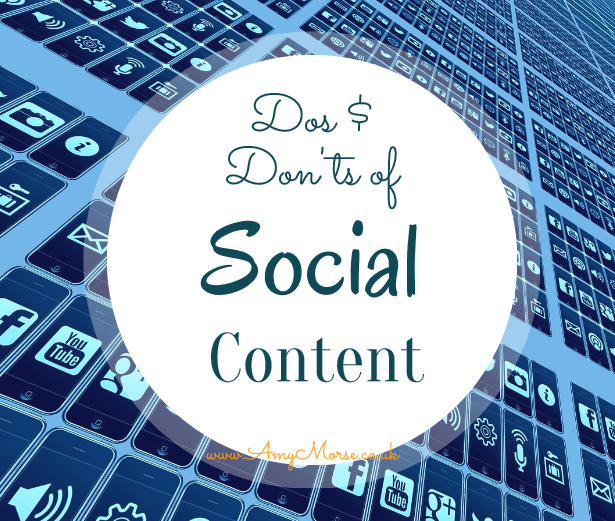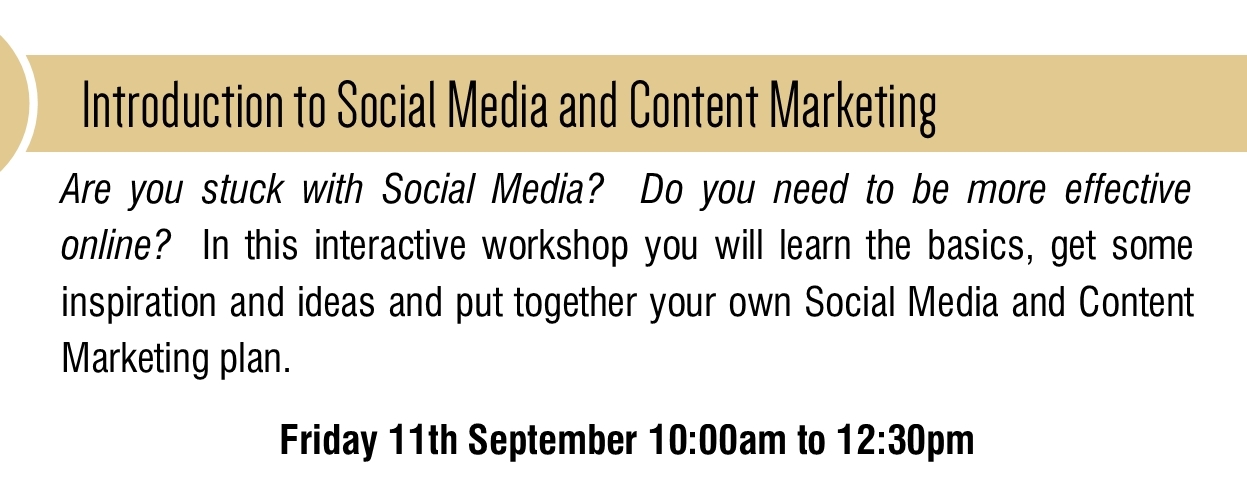Social Media has evolved from a way to chat on line to an integral part of the marketing and communications process for businesses. A common issue that my clients raise with me is not so much; why and how Social Media can benefit their business, but what they should be talking about online? What’s the etiquette? What makes a good Social Media post?
Social Media can be a powerful and effective way to tell your story, share valuable content and build a fan base. It doesn’t have to take up all your time, as long as you have a plan and allocate some regular short bursts of time, it can make a real difference to the reputation and therefore success of your business.
Do
Know your audience. Who are your customers and what do they want from you? This is at the heart of your marketing.
Be where your audience are. Use platforms that your customers use. If your customers aren’t on Twitter but they do use Facebook, focus your energy on being on a platform they will see.
Follow and learn from your competitors. Your competitors aren’t necessarily your enemy. Share their content, refer people to them and maintain good relations, you never know what lucrative opportunities to collaborate may come up.
Genuinely compliment others. Say nice things about other people and they’ll say nice things about you – this is the power of word of mouth and Social Media can give it a megaphone!
Be present. If you are going to use Social Media you need to be a regular and consistent attender. A feed that hardly ever gets updated isn’t worth following. You don’t need to be there 24/7, just dip in regularly, plan and schedule posts in advance. Studies show that 3 tweets a day reach 30% of your audience.
Be generous with your knowledge, information and expertise. Don’t give away everything for free but if you can show that you have expertise and make your customers feel like they’re getting a freebie, they’re far more likely to take the next step and buy your product or service because you’ve established your credibility.
Optimize your feed by following relevant people in your industry, customers, competitors and influencers. If you don’t want to fill your feed with celebrity gossip, don’t follow celebrities! Stay relevant and share liberally
Be polite. All the usual social graces apply – remember your manners. Thank people, ask with a ‘please’ and always acknowledge the contribution of others openly.
Don’ts
Constantly saying ‘Buy My Product’. There is an 80/20 rule with Social Media. 80% of your content should be promoting other people, sharing useful information and saying nice things about other people and 20% self promotion. Once in a while it’s fine to say ‘Buy My Product’, but do so in a helpful way to avoid turning people off. For example; ‘Here are my top X tips on Y, to find out more buy this eBook’ etc. Or, ‘the new range is out now’ – people who do like your product will want to know this.
Be publicly nasty to someone else. There’s a word for this; ‘trolling’. Be courteous, you might be online but you’re still in the real world. If you openly and personally attack others online all you do is make yourself look bad. Call people out if they get their facts wrong, disagree with people – absolutely, but do so in a constructive manner. The best piece of advice my mum ever gave to me was ‘treat other people how you would wish to be treated yourself’.
Engage trolls. The best thing to do if someone attacks you online is to report the abuse and ignore it. Bullies want a reaction from you. If you give them what they want it can quickly spiral out of control. Walk away!
Ignore complaints. While you should ignore trolls; if a customer complains publicly online, as with any customer complaint, you need to respond quickly and positively. Remind yourself; a complaint is not a personal slight (although it can feel that way when it’s your own business) but an opportunity to improve. Take it offline and find out from the customer what they feel would be a fair way to resolve the issue.
Think of it as a sales tool. Social Media does not sell your product. It’s a communication channel, nothing more. It’s important but it’s by no means the all powerful solution that some may suggest. It’s ONE tool in your marketing tool box; a communication tool. But if you don’t have something worth communicating then it is of no value to your business.
If you would like to learn more about how to effectively use Social Media to promote your business, come to this workshop in Bristol in September:
http://www.eventbrite.co.uk/e/introduction-to-social-media-and-content-marketing-tickets-17807021280


It’s really a great and helpful piece of information. I’m glad that you just shared this
useful information with us. Please keep us informed like this.
Thank you for sharing.
Very good article. I absolutely appreciate this site.
Stick with it!